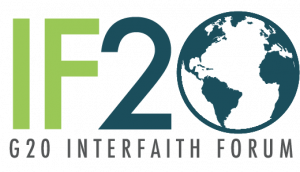The virtual discussion will feature leading voices in international security and nuclear policy.
A major investment in diplomacy will be required to bring about a peaceful settlement of the war in Ukraine. The challenge is made all the harder by Russia's continued nuclear 'sabre-rattling.'”
NEW YORK CITY, NY, UNITED STATES, February 11, 2025 /EINPresswire.com/ -- The Group of 78, in partnership with the G20 Interfaith Forum and the International Academy for Multicultural Cooperation, is bringing together distinguished experts to discuss the increasing nuclear threats amid the ongoing Ukraine-Russia conflict.— Paul Meyer, Fellow at International Security
As the war enters its third year, the webinar will address growing concerns about nuclear rhetoric and explore diplomatic pathways to de-escalation. The virtual discussion will feature leading voices in international security and nuclear policy.
Paul Meyer, Fellow at International Security and Adjunct Professor of International Studies at Simon Fraser University, highlighted the diplomatic challenges ahead:
"A major investment in diplomacy will be required to bring about a peaceful settlement of the war in Ukraine," Meyer said. "The challenge is made all the harder by Russia's continued nuclear 'sabre-rattling'."
Peggy Mason, President of the Rideau Institute on International Affairs, emphasized the critical nature of the current situation:
"The only positive glimmer in the Ukraine war nightmare has been the stark realization by the U.S. and NATO that a direct military engagement with Russia carries an unacceptable risk of nuclear war," Mason said. "But the only way to remove all risk of escalation is to end the war."
Walter Dorn, Professor of Defense Studies at the Royal Military College of Canada, offered perspective on potential peaceful resolutions:
"As both sides of the Russo-Ukrainian war become fatigued, along with a war-weary world, the prospects for a ceasefire and peace agreement are increasing," Dorn said. "The UN's Department of Peace Operations has a system in place, refined over many decades, that could provide the impartial peacekeepers (not NATO!) to make peace more likely to endure."
The virtual meeting will take place on Thursday, February 13, 2024, at 2 PM EST, and will address three key objectives:
1. Better understand the current nuclear threat
2. Examine ways such threats could be minimized or eliminated
3. Explore experiences and lessons learned from nuclear negotiations at both global and country levels Register for the free webinar at https://bit.ly/ukraine-and-russia-webinar
Speakers will include:
· Walter Dorn -- Professor, Defense Studies, Royal Military College of Canada (RMC) and Canadian Forces College (CFC); Director, Canadian Pugwash Group
· Peggy Mason -- President, Rideau Institute on International Affairs; Board Member, Group of 78; Vice-Chair, Canadian Pugwash Group; Advisory Board Member, Canadian Network to Abolish Nuclear Weapons
· Paul Meyer -- Fellow, International Security and Adjunct Professor, International Studies, Simon Fraser University; Founding Fellow, Outer Space Institute; Senior Advisor, ICT4Peace; Director, Canadian Pugwash Group
The webinar will also be livestreamed on YouTube and Facebook.
About the G20 Process
The Group of Twenty, or G20, is the premier forum for international economic cooperation, bringing together the leaders of Earth's most prosperous economies. Collectively, G20 members represent around 80 percent of the world's economic output, two-thirds of the global population and three-quarters of international trade. Throughout the year, representatives from G20 countries gather to discuss financial and socioeconomic issues as well as broader humanitarian issues targeted by the UN's Sustainable Development Goals.
About the G20 Interfaith Forum
The G20 Interfaith Forum seeks global solutions by collaborating with religious thought leaders and political representatives to help shape the overall G20 agenda. It draws on the vital roles that religious institutions and beliefs play in world affairs, reflecting a rich diversity of institutions, ideas, and values. Through its extensive network of networks, it helps prioritize key global policy goals and point toward practical means of implementation at every level of society. For further information, please go to the website at www.g20interfaith.org
Marianna Richardson
G20 Interfaith Forum
email us here
Visit us on social media:
Facebook
X
Legal Disclaimer:
EIN Presswire provides this news content "as is" without warranty of any kind. We do not accept any responsibility or liability for the accuracy, content, images, videos, licenses, completeness, legality, or reliability of the information contained in this article. If you have any complaints or copyright issues related to this article, kindly contact the author above.


